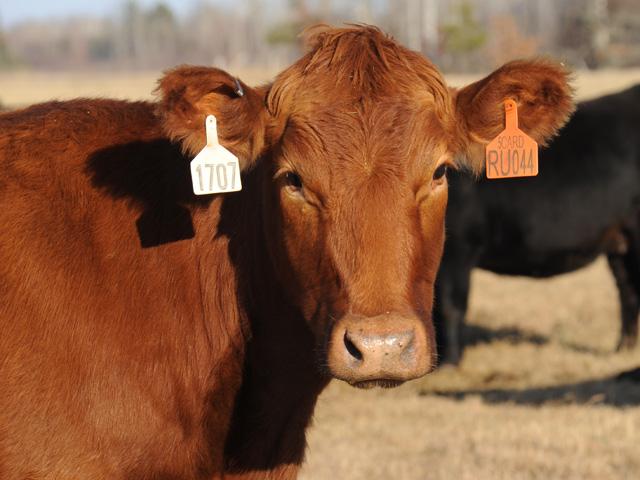Ask the Vet
On-Farm Cattle IDs and Traceability
READER QUESTION:
We always use ear tags to identify our cattle, but I've been told these are not considered an official form of identification. What is official identification now, and should I be worried about it?
DR. MCMILLAN'S ANSWER:
Some form of on-farm animal identification (ID) is essential to cattle management. This could include ear tags, brands, tattoos or a combination of all of the above. Many of these systems may not be unique when an animal leaves the farm, however, which is why we need official ID.
P[L1] D[0x0] M[300x250] OOP[F] ADUNIT[] T[]
In the event of a disease outbreak, we must have a workable system in place to trace the movement of livestock. We need to have a way to quickly gain control of the situation. An official ID is also almost always required now for interstate movement for show, breeding or sale of cattle and many other types of livestock.
Unfortunately, there is no national agreed-upon standard of ID. Each state sets its own rules. As far as I can determine. today all states recognize an official 840 radio frequency identification device (RFID), and an official 840 bangle tag. Many, if not all, states still accept the Official USDA alpha-numeric metal ear tag (silver bangs tag or orange calfhood vaccination tag) -- but these are scheduled to be phased out in the next couple of years. Some states recognize official breed registry tattoos and brands.
Official ID tags have certain criteria that must be met. Each tag must be tamper-proof with a unique pre-printed 15-digit number beginning with 840, the USDA shield, the manufacturer's logo or trademark and contain the statement "Unlawful to Remove". A herd ID number can also be printed on the tag. Only certain manufacturers produce these tags.
The tags are issued to a specific producer, farm, or ranch and are linked to the location identification system used by their State, which is usually the Premise ID Number. These tags may include an RFID button or be paired with a separate RFID button which can be quickly scanned by a reader.
As COVID has shown us, diseases know no boundaries and can spread very quickly. The USDA has done a remarkable job of keeping foreign diseases out of this country and controlling disease outbreaks that have occurred. I am certain animal traceability will be even more important in the coming years.
**
Editor's Note:
Please contact your veterinarian with questions pertaining to the health of your herd or other animals. Every operation is unique, and the information in this column does not pertain to all situations. This is not intended as medical advice but is purely for informational purposes.
Write Dr. Ken McMillan at Ask the Vet, 2204 Lakeshore Dr., Suite 415, Birmingham, AL 35209, or email vet@progressivefarmer.com.
(c) Copyright 2022 DTN, LLC. All rights reserved.






